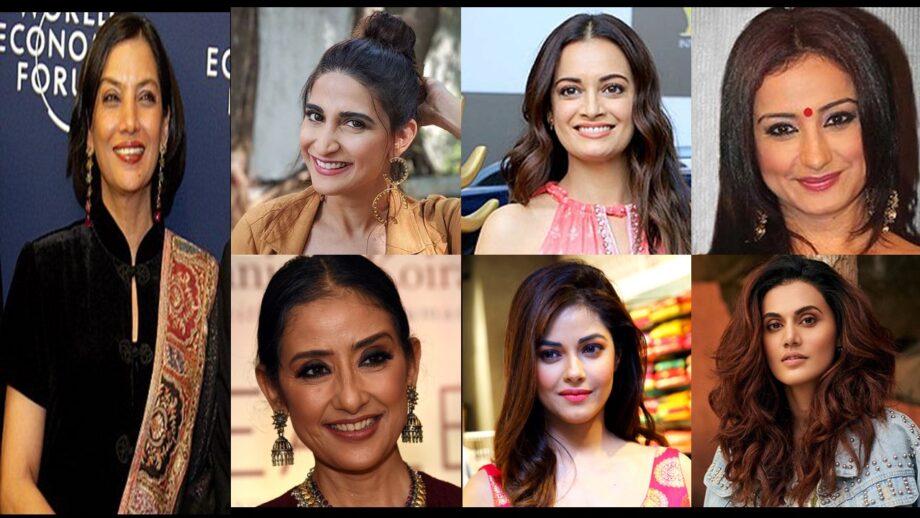On Women’s Day, Bollywood’s leading ladies and talented stars on status of women in cinema and society today.
Shabana Azmi: “India is country that lives in several centuries simultaneously. And so it is with the position of women in our society. On the one hand we’ve had a woman prime minister and a woman president. Lots of women in the corporate and political world occupying powerful positions. On the other hand it is also a sad fact that female foeticide is still being practised in India, not only in the back of the beyond as one would imagine, but in metropolitan cities because the need for a male heir is all-persuasive. But I think there has been a definite shift in the way women are being perceived today , and that is also reflected in our cinema. We are seeing many women on screen projecting the many complexities of our society which we never had before. Earlier we had the standard heroine Miss Neeta who didn’t even have a surname and never had a job except to look pretty and sing songs with the hero. Today there are many more women-centric films and that’s healthy sign. However the objectification and commodification of women still continues.So there is much left to be desired.”
Divya Dutta: “I do think there are some significant changes happening. In cinema as an actor I can say I’ve gone from from being a goodygoody heroine to playing amazingly layered characters where it’s okay to have all shades , including grey. To even have your vulnerabilities on display along with your strengths …to be accepted as a character.The audience now looks for real characters whom they can relate to , whose strengths and weakness they can associate with . Yeh sab cheezen abb acceptable ho gayi hai female characters mein. The kind of roles I’m offered now are so layered, I am amazed! It is a delight to play these character rather than play the monotonous characters I got to play . We get to see loads of women at work. Even on our movie sets we see so many women .And that’s heartening. On the other hand you hear of so many rapes and domestic violence. They remind us we’ve a long way to go.But I am sure we will make it happen.”
Dia Mirza: “The lockdown has reversed the gains made towards women’s equality and rights. 1 in 3 women experienced domestic violence and were locked in with their perpetrators. The ‘status’ of the average India women will change only when we find equal representation in all walks of life.”
Taapsee Pannu: “A lot! A lot has changed. In last 10 years I’ve seen a huge change. And going forward it’s only going to get better. A female perspective has entered our work place. Far from equality right now but there is a good start.”
Manisha Koirala: “Not much change , really, we need to support them lot more.. education and making them financially independent if not there.. things can’t change much.”
Meera Chopra: “Over the last two decade, the gender landscape In India has changed, bringing women to the cusp of a powerful social and political revolution. Even though Indian women enjoy constitutional equality with men, deeply entrenched stereotypical norms, illiteracy, and social and economic subjugation thwart their freedom. And for that change to happen we need to get rid of patriarchy. Girl education is very important, but more then that our men needs to be more progressive so that they can empower women without any insecurity, only then the status of a women on whole would be uplifted. Though overall it’s a good start and a welcome change.”
Aahana Kumra: “I think it’s a little hard to gauge how much women have progressed. Because we claim to go a step ahead and then we move back five steps. Of course women now have choices that they exercise.But there is a lot of disparity between the genders in our day-to-day lives . Agreed we are allowed to choose our own careers and partners. But still it is a very long road ahead until we can hope for equality. There are bad and good days. But at least women are allowed to speak what they feel. Conversation is the only way a society evolves.”

